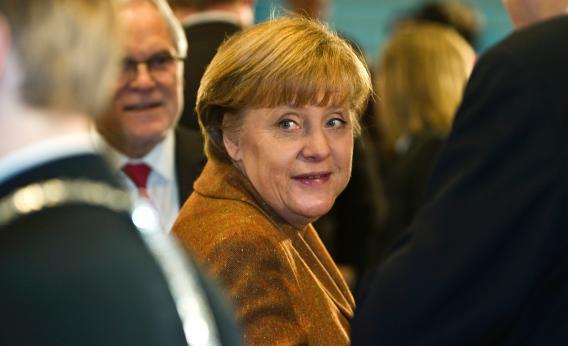Is the Eurozone’s new fiscal compact a necessary step on the road to resolution of the crisis or a straightjacket that will doom the continent to misery? Neither, Marcus Walker argues persuasively in the Wall Street Journal:
Most likely, it will do neither. The proposed treaty doesn’t overcome doubts about the euro zone’s long-term viability and membership, and its constraints on government budgets aren’t as tough as they appear at first glance.
The real question is why, given that the effort to create binding fiscal rules is extremely difficult but also only tangentially relevant to the crisis, is so much time and energy going into this project? The optimistic view, such as it is, is that this is just what needs to be done, politically speaking, to keep the whole European enterprise moving forward. The pessimistic view is that it reflects genuine confusion about the stakes. Perhaps most likely we have an ad hoc economic theory ginned up to meet the perceived political needs of the day. But Peter Spiegel in Brussels for the FT has the key quotes wherein Merkel inadvertantly explains why this won’t work:
Ratification by Germany’s most important partner in the eurozone also became more complicated as Mr Sarkozy said he would not ask the French assembly to approve the treaty before April’s presidential election. Mr Sarkozy’s likely opponent, Socialist François Hollande, has said he would seek to renegotiate the pact, but Ms Merkel said she did not believe France would back away from the commitment.
“Europe would not function any more if it changed course after every election,” she said.
She is of course correct about that as an analytic point but what else can Europe do? The European Union just doesn’t have the kind of decision-procedure or political institutions in place that could stick to these kind of policies. There’s no “President of Europe” election someone can run for, win, implement policy changes, and then run for re-election to entrench them. There’s a shifting series of intergovernmental agreements and a kaleidoscope of national political concerns driving the agreers.
